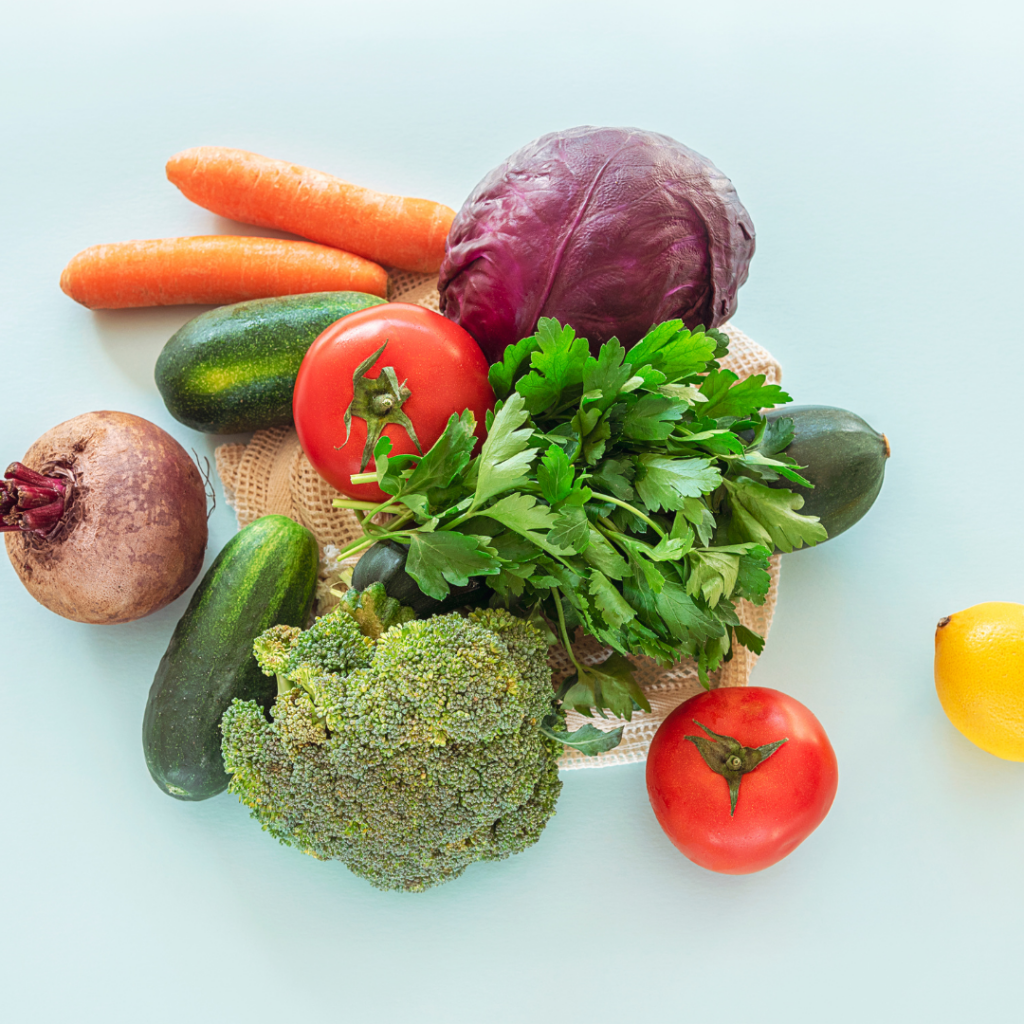
The foods we eat contain calories that our bodies convert to energy that we use to breathe, repair muscles, digest foods, sit up, walk, and dance–basically everything we do on a daily basis. It is important that we fuel our bodies with the right amount of nutritionally dense foods. We want to focus on making sure that the bulk of what we eat at each meal comes from good sources of carbohydrates, proteins and fats. Reminder, rather than focusing on trying to lose weight, the goal of the Holiday Challenge is to maintain your weight throughout the holiday season. To determine how many calories you need each day to maintain your current weight visit the NIH Body Weight Planner. It is not recommended to decrease your daily calories below 1200.
Keep the following in mind as you prepare healthy meals and snacks:
- Choose healthy carbohydrate sources like fruits, vegetables and whole grains.
- Carbohydrates sometimes have a negative reputation, but fruits, vegetables and whole grains are essential to a healthy eating pattern.
- Increase healthy carbohydrates while limiting highly processed foods and added sugars.
- Examples of whole grains include whole-wheat bread, oatmeal, brown rice, quinoa and farro.
- Opt for high-quality proteins with a low saturated fat content.
- Make lean meats, beans, eggs and low-fat dairy products your main proteins.
- Reduce and limit red meat consumption.
- Include healthy, unsaturated fat sources.
- Olive oil, nuts, seeds and avocado are examples of healthy fats.
- Unsaturated fats in these sources can help lower “bad” cholesterol.
- Limit saturated fats that increase the risk for heart disease and stroke.1
- Combining carbohydrates, proteins and fats during each meal or snack will help you feel full until your next meal.
- Aim to eat a meal or snack every 3 to 4 hours. This will help keep you from becoming too hungry and potentially overeating later in the day.
- Strive to eat mindfully by enjoying the tastes, textures and smells of your food. Pay attention to your hunger and satiety cues, and put electronic devices away while eating. For more, refer to the 12 Steps to Mindful Eating.
(1) Dietary Fats. American Heart Association. Reviewed March 23, 2014. https://www.heart.org/en/healthy-living/healthy-eating/eat-smart/fats/dietary-fats#:~:text=Dietary%20fats%20are%20essential%20to,Your%20body%20definitely%20needs%20fat.
Don’t miss another great blog: Subscribe Now
